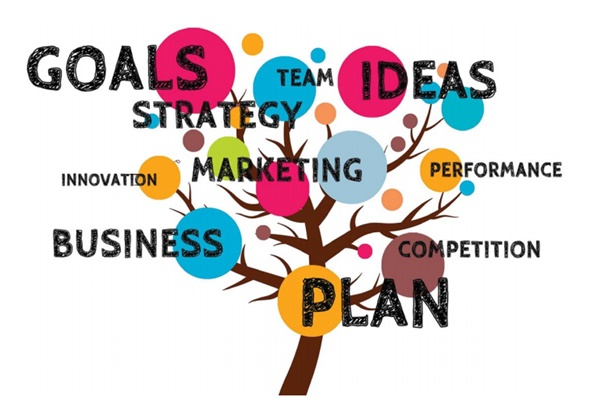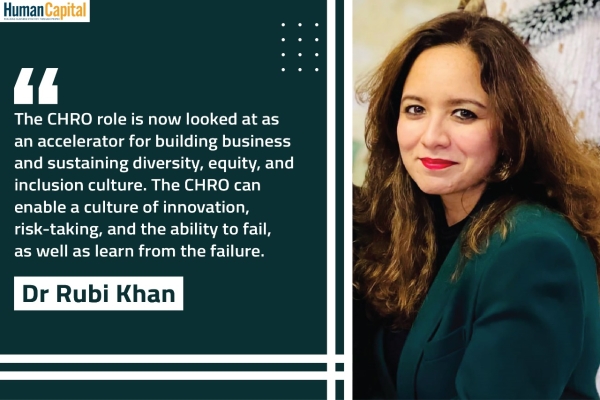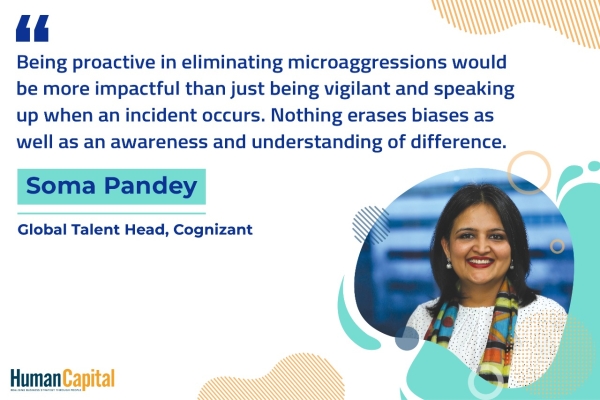Performance and career conversations are a threshold to a culture that has a stouter focus on refining performance, augmenting skills, and facilitating employees to make the most of their prowess. So, if we consider these conversations as indicators of work culture, we are more likely to reminisce about the things that we know strengthens any culture change.
The world of work changes constantly with the relentless economic, technical, and demographic transformations generating talent challenges for businesses, managers, and employees. In this perpetual flux, skilled employees, especially those in short supply, have bigger leverage to edict terms of employment to their prospective employers in terms of how, where, and when they want to work.
As employees take better control, they report the anticipation of moving to other companies for growth and development opportunities to enhance their value to future employers. In this new milieu of individually owned career management, companies may partake in, inspire, guide, and gain value from an employee’s career journey but cannot control it aligning their goals with the goals of the organization.
Thus, companies must devise strategies to engage such employees while meeting their business objectives and goals. Additionally, it becomes incumbent upon organizations to manage those employees who do not recognize their accountability in upholding appropriate skills, while still considering that they can continue their work irrespective of the shifting expectations, technologies, and roles. In such cases, companies must revisit career dialogues with employees.
Reinventing Performance & Career Conversation
Performance and career conversations are useful for all workforces who derive great value from them. Honest career discussions with capable employees acknowledge their value to the organization and help to establish their personal goals. While it is very easy to recede from such discussions dreading fuelling employee desires for a promising future, performance and career conversations are essentially a calculated approach to engaging and retaining top performers.
As the work culture changes, job requirements are changing as well.
Today, every business must manage a subset of employees whose talents and skills are becoming obsolete and job prospects – both within and outside the organization – are wearing off. For such workers, a performance and career conversation can be a valued platform to raise pertinent matters within the perspective of the employee’s immediate and long-term expectations. It can be an appreciated and welcome caveat for employees who either cannot face or fail to see their gradually unwarrantable employment prospects. If executed well, the career conversation offers the perfect prospect to bring into line employee’s spurs and ambitions with the organization’s need to stay agile, compliant, and responsive to an intricate and evolving marketplace.
Companies must amplify individual and organizational performance to facilitate the employees’ career journey — within or outside the organization.
Empowering employees to become more proactive in creating the subsequent phases of their career nurtures more than just engagement.
Organizations that immerse the performance and career conversation process into their work culture will benefit as well. Employee engagement will rise and translate into amplified individual and organizational performance. Thus, output rates will increase too. It will become effortless to preserve key talent. These conversations will help redesign the workforce so that the organization has the exact skills in place to meet the surfacing market and business requirements. It will also increase lateral mobility as employees are enabled to discover openings in different areas of the organization, resultant in a sprightlier workforce and a powerful competitive edge.
Impact of the ‘New Normal on Employees
In the ongoing unprecedented situation of COVID-19, the vital question is how the pandemic and the ‘new normal’ scenario has impacted the way employees feel about their jobs and companies? Do they feel more motivated or, have their engagement levels been harmed by the pandemic?
Some newly released statistics can help us get a better understanding of how employee engagement has been affected by the pandemic:
88% of organizations have encouraged or required employees to work from home, regardless of whether or not they showed coronavirus-related symptoms (Gartner)
♦ 88% of organizations have encouraged or required employees to work from home, regardless of whether or not they showed coronavirus-related symptoms (Gartner)
♦ While 60% of employers have increased employee listening efforts, few are using formal listening approaches. Indeed, just 31% conduct employee surveys and 13% conduct focus groups (Willis Towers Watson)
♦ A survey run in the UK during the pandemic showed that 73% of the respondents believed they were more efficient when working from home (Statistica)
♦ 22% of remote employees say that they struggle to unplug after work (Buffer)
♦ 75% of employees say they feel more socially isolated, 57% are feeling more anxiety, and 53% say they feel more emotionally exhausted (Harvard Business Review)
♦ By early April, about 45% of workers said they were burned out, according to a survey of 1,001 American employees by Eagle Hill Consulting (Bloomberg)
♦ 85% of employees say they’re most motivated when management offers regular updates on company news (Trade Press Services)
♦ Only 42% of employees strongly agree that leadership is effectively leading their organization through the crisis (Perceptyx)
♦ 16% of employers are using technologies more frequently to monitor their employees through methods such as virtual clocking in and out, tracking work computer usage, and monitoring employee emails or internal communications/ chat (Gartner)
♦ 45% of adults reported that anxiety and stress related to COVID-19 affected their mental health (The National Law Review)
♦ When it comes to the pandemic, more than 90% of employees said they wanted at least weekly communication from their company; 29% said they prefer daily communication (Harvard Business Review)
Performance and career conversations are a threshold to a culture that has a stouter focus on refining performance, augmenting skills, and facilitating employees to make the most of their prowess. So, if we consider these conversations as indicators of work culture, we are more likely to reminisce about the things that we know strengthens any culture change.
Companies will do well to remember that all employees want to improve their careers. While for some, improvement will mean moving upwards for more exciting work and accountabilities, for others, it may mean moving across organizational borders into new experiences and roles. As employees seek to grow their competencies in meaningful ways, performance and career conversations become the keystone in a self-managed career.
Do you think hybrid work arrangements would be a common feature of the workplaces going forward?
Trending
-
SBI General Insurance Launches Digital Health Campaign
-
CredR Rolls Out 'Life Happens' Leave For Its Employees
-
Meesho Announces 30-Week Gender-Neutral Parental Leave Policy
-
Microsoft Unveils Tech Resilience Curriculum To Foster An Inclusive Future
-
60% Indian Professionals Looking For Job Change Due To COVID: Survey
-
SpringPeople And Siemens Collaborate For Digital Transformation Push
-
86% Professionals Believe Hybrid Work Is Essential For Work Life Balance: Report
-
Almost 1 In Every 3 People's Personal Life Affected Due To Work Stress
-
Meesho Rolls Out Reset And Recharge Policy For Employees
-
80% Of Talent Leaders & Academics Say Pandemic Changed Skill Needs For Youth: Report
-
Hero Electric Rolls Out 'Hero Care' Program For Employees
-
Human Capital In Collaboration With ASSOCHAM Hosts Virtual Conference
-
IKEA India, Tata STRIVE Collaborate To Create Employability And Entrepreneurship Opportunities
-
SAP India, Microsoft Launch Tech Skilling Program for Young Women
-
DXC Technology, NASSCOM Collaborate For Employability Skills Program
-
Lenskart To Hire Over 2000 Employees Across India By 2022
-
Mindtree Launches Learn-and-Earn Program
-
Tata AIA Extends 'Raksha Ka Teeka' To Its Employees
-
Swadesh Behera Is The New CPO Of Titan
-
NetConnect Global Plans To Recruit 5000 Tech Professionals In India
-
Hubhopper Plans To Hire 60% Of Indian Podcasters By 2022
-
Corporate India Needs More Women In Leadership Roles: Report
-
Aon to Invest $30 Million and Create 10,000 Apprenticeships by 2030
-
Tech Mahindra Launches ‘Gift a Career’ Initiative for Upskilling of Youth
-
40% Women Prefer Flexible Working Options in Post-COVID World: Survey
-
3 out of 4 companies believe they can effectively hire employees virtually: Report
-
Vodafone , CGI and NASSCOM Foundation launch digital skills platform
-
Odisha: Bank, postal employees to deliver cash for elderly, differently-abled persons
-
Skill India launches AI-based digital platform for "Skilled Workforce"
-
Hiring activity declines 6.73% in first quarter: Survey
-
70% startups impacted by COVID-19 pandemic
-
Bajaj Allianz Life ropes in Santanu Banerjee as CHRO
-
Over 70 Percent MSMEs look at cutting jobs to sustain businesses
-
93 Per Cent employees stressed about returning to office post-lockdown
-
Johnson & Johnson India announces family benefits for same gender partners
-
Indian firms turning friendly towards working mothers
-
Welspun India names Rajendra Mehta as new CHRO
-
Wipro partners with NASSCOM to launch Future Skills platform



Human Capital is niche media organisation for HR and Corporate. Our aim is to create an outstanding user experience for all our clients, readers, employers and employees through inspiring, industry-leading content pieces in the form of case studies, analysis, expert reports, authored articles and blogs. We cover topics such as talent acquisition, learning and development, diversity and inclusion, leadership, compensation, recruitment and many more.
Subscribe Now













































Comment